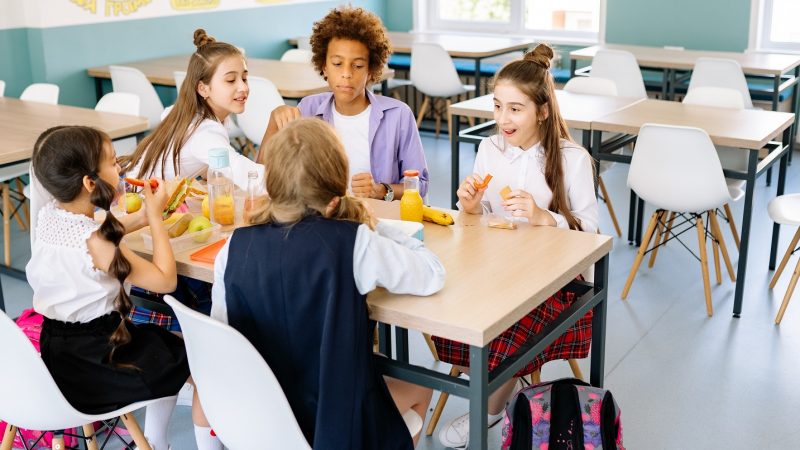‘It’s simply not right that 4.2 million children in the UK – that’s 9 pupils in every class of 30 – are growing up trapped in poverty.'

Almost 300,000 primary school children in London are to get free school meals this school year, thanks to a programme announced by the mayor of London in February. Scotland and Wales have also pledged to start providing free school meals to all primary children. Despite the progress and the fact that Britain is one of the wealthiest countries in the world, it is, as a whole, lagging behind many other countries for free school meal provision.
In June, the National Education Union (NEU) launched a No Child Left Behind campaign, calling for all children in primary school to have access to free school meals. The anti-child poverty campaigners are calling on the government to commit to eradicating child poverty in the UK, saying, ‘it’s simply not right that 4.2 million children in the UK – that’s 9 pupils in every class of 30 – are growing up trapped in poverty.’
Here are the countries that are helping stamp out child poverty by making free school meal provision work.
Sweden
Sweden provides meals to all pupils aged between seven and 16, as well as to the majority of students up to the age of 19. Sweden has been providing children with free school meals since the early 1900s, as the nation considers nutrition to be vital to student’s health, as well as their ability to learn and social wellbeing.
Finland
Finland began its free school meals provision during the Second World War. The scheme is still going today, providing around 900,000 children aged between six and 16 will access to hot meals every day.
India
India boasts the largest free school meal scheme in the world. It provides lunches for free to around 125 million children aged between six and 14. The Mid Day Meal Scheme, now known as the POSHAN Scheme, is designed to improve the nutritional standing of school children nationwide.
Brazil
In 2009, Brazil extended their free school meals provision to all children. It is designed to help control childhood obesity in the country. Brazilian legislation states authorities must spend at least 30 percent of their school meal budget on produce from local farmers, to assist local communities as well.
Estonia
Since 2002, all children in primary and secondary schools have received free school meals, alongside free milk, fruit and vegetables.
Rwanda
The World Food Programme’s Home-grown school feeding program has been successfully implemented in seven districts in Rwanda. The aim of the program is to ensure that every child receives a healthy meal every day by 2030.
United States
School children in eight US states can now eat free school meals. Colorado, Minnesota, Vermont, Michigan, New Mexico, and Massachusetts are making breakfasts and lunches at school permanently free to all students starting this academic year, regardless of family income. They follow in the footsteps of California and Maine. Supporters of the scheme are urging Congress to extend free meals to all children nationwide.
Gabrielle Pickard-Whitehead is a contributing editor to Left Foot Forward
Left Foot Forward doesn't have the backing of big business or billionaires. We rely on the kind and generous support of ordinary people like you.
You can support hard-hitting journalism that holds the right to account, provides a forum for debate among progressives, and covers the stories the rest of the media ignore. Donate today.



